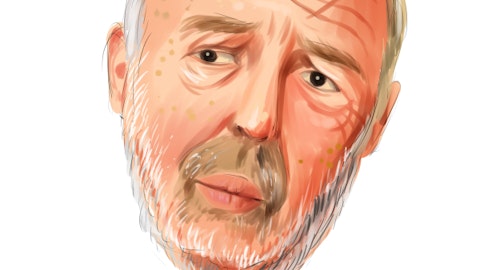6) Who will be the first country to activate the OMT? Ireland. Markets had assumed Spain would be the OMT’s first customer although that distinction may go to Ireland. The country’s PM recently said he intends on exiting its current bailout next year by returning fully to int’l bond markets by the second half of 2013, making it eligible for OMT bond purchases. As for Spain, while spreads over German bunds remain wider than Madrid would like the country has been able to fund itself and the recent liquidity injection into the country’s banking system could create more sovereign demand into 2013.
7) Does Europe stay calm throughout the Italian political transition? Yes. One of the biggest fears heading into 2012 was Hollande’s new government in France and whether he would markets to lose confidence in Paris just as they had in Madrid, Rome, and others. However, the transition from Sarkozy proved relatively seamless (from the perspective of financial markets) and investors are therefore increasingly sanguine w/the upcoming Italian turnover. Mario Monti, the current premier, could still run for PM although reports lately suggest he is more likely to be president or provide the platform for a new party instead of actually leading the next government. Key dates to watch: Monti’s year-end press conf (this Sun Dec 23) and the election date (likely Feb 24).
8) Do the improved Eurozone financial market conditions translate into better economic growth for that region? Eventually. Sentiment around sovereign markets in Europe has improved remarkably since the Jul “bumblebee” speech but economic data hasn’t improved all that much. The consensus view is for GDP growth to start turning positive by Q3:13.
9) Is this time different in Japan? For the second time in 2012, sentiment is becoming increasingly upbeat on Japan. The incoming PM (S Abe) has adopted aggressive rhetoric around fiscal and monetary policies, pledging to end the country’s years-long deflationary spiral and generate material nominal GDP growth. Whereas the “big bang” monetary blitz of Feb wound up petering out after a few months investors anticipate more follow through this time around given the new government and the likely new central bank governor. A 2% inflation goal combined w/massive asset purchases (inc. of both yen and non-yen denominated securities) could result in “this time being different”.
10) Israel/Iran – will chatter around a possible nuclear strike on Iran’s nuclear facilities rise again following the Israeli elections? Fears of a military conflict in the Gulf have quieted these last few months as Israel and the US both focused on internal political matters. However, the US elections have occurred and Israel will head to the polls soon (Jan 22). If the present sanctions are judged to be ineffective and talks between Tehran and int’l powers fail to make progress, rhetoric around a military solution will likely heighten (Iran and the IAEA will next hold talks Jan 16). Note that Iran has apparently been sending signals behind the scenes of its desire to strike some type of a nuclear compromise





